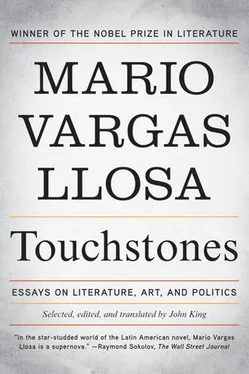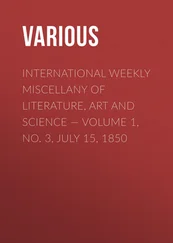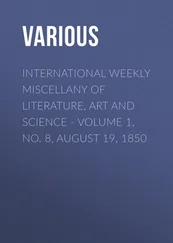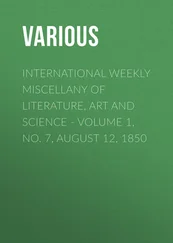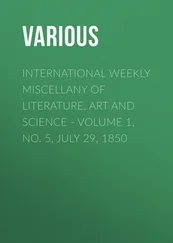These first ten years of my life were intense, full of many exciting events, very dear friends and kindly adults who were easy to win over through jokes and sweet-talking. My greatest desire was, of course, that my oldest and favourite uncle — uncle Lucho, who looked like a film actor and who had all the women swooning over him — would take me to one of the two swimming pools in Cochabamba — the Beverley and the Urioste — where I learned to swim (almost at the same time as learning to read). It was the sport that I enjoyed most as a child, and the one I was least bad at. To be as good a swimmer as Tarzan sometimes competed with my desire to be a bullfighter (although, after some Bill Barnes adventures, I shifted allegiance and wanted to become a pilot). The first bullfight I saw in my life was around that time, when I went with my uncle one Sunday afternoon to the small bullring in the upper part of the city. I also went to my first play in Cochabamba: not a school production, but a drama with grown-up people that my grandparents and my mother took me to see one evening, from a box in the Acha Theatre. My only memory of the work is that, at a certain moment, to everyone’s consternation, a man gave a woman a loud slap.
However, even though I had a good time in the real world during those years in Bolivia, I had an even better time in the other, the invented world, the one I read about in the stories in El Peneca and Billiken and in the adventure stories that I devoured with gluttony. At that time, we children read fictions rather than seeing them: the drawings in the comics had not yet taken over from the written stories. Donald Duck and Mickey Mouse and their friends were not as popular as they would later become, or, at least, they were not for me or, I think, for my friends in Cochabamba. El Peneca and Billiken had stories that we had to co-invent, using our imagination to the limit, from the information given in the words. These stories and mini-novels were turning us into readers , while the cartoons, with their few words suspended in white clouds above the heads of the characters like skinny Olive and muscle-bound Popeye, or Puss in Boots, where the cartoonist had already visualised the fiction for us, exonerated us of a great deal of mental effort, and, instead of readers, they were forming spectators, more passive consumers of the imaginary world. Mine was probably the last generation of child readers for whom the need for a fictive life would be assuaged primarily through reading; those that came later would satisfy this thirst not so much with words as with images, firstly the images of cartoons, then the images of cinema and lastly the images of television. I do not deplore this; I am merely pointing it out, and registering my joy at having been born at the right time, so that I would acquire the vice of reading. This is a vice that does not go unpunished, as Valéry pointed out: we pay dearly for it, in fact, through feeling dissatisfied with and mistrustful of life as it is, for it can never scale the heights and plummet to the depths that we invent, spurred on by our desires.
In any event, the fictions of my Bolivian childhood are more vivid in my memory than flesh-and-blood people. Memory is decisive proof. Although the recollections of my friends and adventures are very much alive, the landscapes and characters of the literary illusion are even more alive, they still sparkle in my memory. The woods of Genevieve of Brabant and those of Ivanhoe, full of knights with lances and armour, mounted on graceful white horses with flowing manes. The African jungle where Tarzan meets Jane (who talks to him in every imaginable language, without him understanding her), presents her to Chita and swings her on lianas through the undergrowth, saving her from crocodiles and cannibals. The burning mountains of the Mission of San Juan de Capistrano, where the crack of the avenging whip of Zorro resounds. The seas of Sandokan and his partner Yanes, and of the terrible pirates who fought with scimitars and daggers with complicated shapes, like the wavy-bladed kris, into whose depths the Nautilus of Captain Nemo slides silently and fantastically. The currents of air that propel the balloon of Phileas Fogg on his journey round the world, just in time to win the bet. And the icy and violent steppes, with the brave and blinded courier of the Tsar galloping on his horse.
It was not in Bolivia, however, but later, in Piura, that I experienced my first literary passion: Alexandre Dumas. The immortal three musketeers, who were four — D’Artagnan, Athos, Porthos and Aramis — dazzled me for ever. My final years of primary school and my first years of secondary school were lived in the shadow of Dumas, whose series of novels — The Count of Monte Cristo, The Queen’s Necklace, Memories of a Doctor , the musketeers book, Twenty Years After and the Vicomte Bragelonne and so many others — filled those years with heroic gestures and romantic tenderness, bathed in bright and spectacular colour. But in Cochabamba I had a taste of what was in store for me in two books by Miguel de Zevaco, Nostradamus and The Son of Nostradamus , which I managed to borrow from a young friend of my mother called Julia Urquidid who — such are life’s surprises — I would end up marrying ten years later. Although, if I had to mention just one of these fictional heroes that stands out from the rest in my memory of my earliest readings, it would be William, the boy invented by Richmal Crompton. The Just William books had red covers, and each told a different story of a boy who was about my age, who, like me, had an unquenchable thirst for adventures and also a grandpa who was both an accomplice and a friend, despite the age difference.
Grandfather Pablo wrote poems that he sometimes recited to family gatherings, and he had a number of poetry books in an old glass-fronted bookcase. He was very proud of his father, my great grandfather, Don Belisario Llosa Rivera, a poet and a writer, and he kept a novel of his ( Sor María , that had won a prize in a competition organised in 1886 by the Ateneo in Lima), which he gave me. It disappeared in all the moves and journeys that my maternal family (in effect, the only family I had) made after 1945, when a relative of ours, José Luis de Bustamante, was elected President of Peru, and he nominated my grandfather Prefect of Piura. My mother and grandparents were delighted that I was such a keen reader, and they encouraged me to learn poems by heart and recite them in front of the family. Grandma and Mamaé read poems by José Santos Chocano and Juan de Dios Peza and novels by Xavier de Montépin — The Mad Women’s Doctor and Paris-Lyon-Mediterranean — and a novel by Vargas Vila (‘the only presentable novel by him’, they said), Aura or the Violets , that had many ellipses and that I flicked through. My mother had on her bedside table an edition with a blue cover dotted with little golden stars of Twenty Love Poems and a Song of Despair by Pablo Neruda that she had forbidden me to read. This was the first maudit book that I read in my life, nervously, in hiding, with that particular delight that danger brings. Two lines from the first poem (‘My rough labourer’s body tunnels into you/And makes the child leap up from the depths of the earth’) really intrigued me, but I intuited that it would be imprudent to ask the grown-ups to decipher them for me.
There is no doubt that my vocation as a writer began to gestate there, in that house on Ladislao Cabrera, in the shade of these readings and as a natural derivation of the hypnotic happiness that I felt as I lived all those adventures through the miracle of reading. That life was not the same life of school, my friends, the family and Cochabamba but, although it was intangible, it was no less real, that is, no less felt, enjoyed or suffered than the other life. And it was also much more diverse and intense than the life of daily routines. To be able to travel, by simply concentrating on the letters in a book, to the depths of the ocean, to the stratosphere, to Africa, England, Belgium or the seas of Malaysia, and to travel back from the twentieth century to the France of Richelieu and Mazarin, and, with each character of fiction, to be able to change skin, face, name, love, fate, to become in this way so many different people while staying myself, was a miracle that revolutionised my life and put me from that time on completely under the spell of fiction. I would never tire of repeating this magic, with the fascination and enthusiasm of my early years, until it became the central concern of my existence.
Читать дальше
